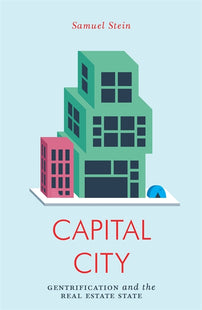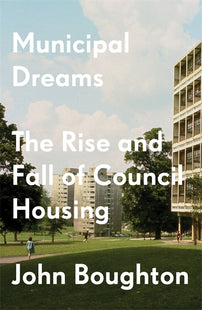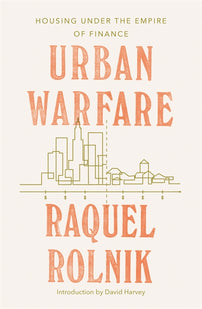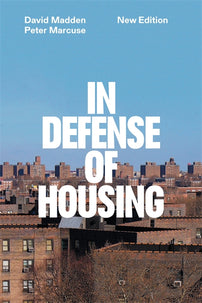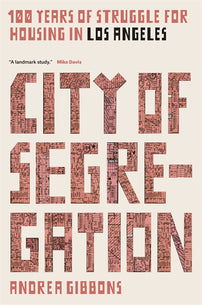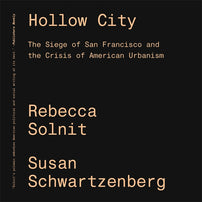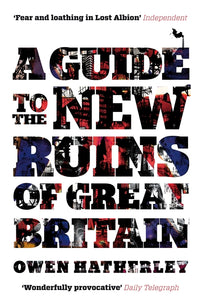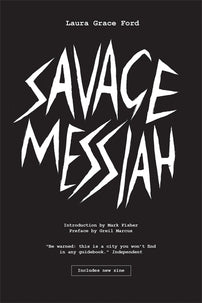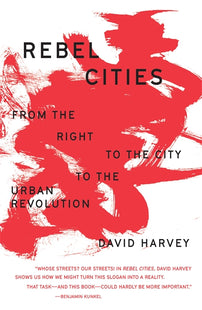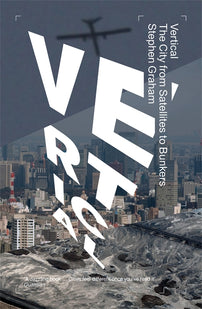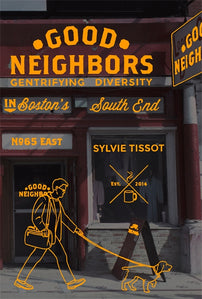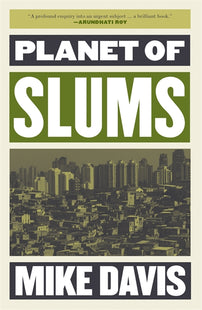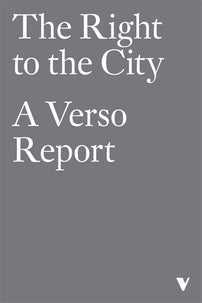The financialization of housing
In every major city in the world there is a housing crisis. How did this happen and what can we do about it?

The financialisation of housing has become a global catastrophe, leaving millions desperate and homeless. Since the 2008 financial collapse, models of home ownership, originating in the US and UK, are being exported around the world.
These books offer radical analyses of one of the most compelling global crises of our time.
See also our Right to the City free ebook: a response to Henri Lefebvre's “Le Droit a la Ville” (at the bottom of this reading list!).
[book-strip index="1" style="buy"]Our cities are changing. Around the world, more and more money is being invested in buildings and land. Real estate is now a $217 trillion dollar industry, worth thirty-six times the value of all the gold ever mined. It forms sixty percent of global assets, and one of the most powerful people in the world—the president of the United States—made his name as a landlord and developer.
Capital City explains the role of planners in the real estate state, as well as the remarkable power of planning to reclaim urban life.
In this landmark reappraisal of council housing in the UK, historian John Boughton presents an alternative history of Britain. Rooted in the ambition to end slum living, and the ideals of those who would build a new society, Municipal Dreams looks at how the state’s duty to house its people decently became central to our politics. The book makes it clear why that legacy and its promise should be defended.
How deeply damaging policies have destroyed council housing: read an excerpt from Municipal Dreams on Grenfell here.
[book-strip index="3" style="buy"]The most comprehensive survey of the current crisis, Urban Warfare charts how the financial crisis and wider urban politics have left millions homeless and in financial desperation across the world. Using examples from across the globe, Rolnik shows how our cities have been sold to construction companies and banks, while supported by government-facilitated schemes, such as “the right to buy” subsidies and micro-financing. Our homes and neighbourhoods have become the “last subprime frontiers of capitalism,” organised by those who benefit the most.
[book-strip index="4" style="buy"]Everyone needs and deserves housing. But today our homes are being transformed into commodities, making the inequalities of the city ever more acute. Profit has become more important than social need. The poor are forced to pay more for worse housing. Communities are faced with the violence of displacement and gentrification. And the benefits of decent housing are only available for those who can afford it.
In Defense of Housing is the definitive statement on this crisis from leading urban planner Peter Marcuse and sociologist David Madden. They look at the causes and consequences of the housing problem and detail the need for progressive alternatives. The housing crisis cannot be solved by minor policy shifts, they argue. Rather, the housing crisis has deep political and economic roots—and therefore requires a radical response.
City of Segregation documents one hundred years of struggle against the enforced separation of racial groups through property markets, constructions of community, and the growth of neoliberalism. This movement history covers the decades of work to end legal support for segregation in 1948; the 1960s Civil Rights movement and CORE’s efforts to integrate LA’s white suburbs; and the 2006 victory preserving 10,000 downtown residential hotel units from gentrification enfolded within ongoing resistance to the criminalization and displacement of the homeless. Andrea Gibbons reveals the shape and nature of the racist ideology that must be fought, in Los Angeles and across the United States, if we hope to found just cities.
[book-strip index="6" style="buy"]The Autonomous City is a radical history of squatting and the struggle for the right to remake the city. Alex Vasudevan retraces the struggle for housing in Amsterdam, Berlin, Copenhagen, Detroit, Hamburg, London, Madrid, Milan, New York, and Vancouver.
Pictured as a way to reimagine and reclaim the city, squatting offers an alternative to housing insecurity, oppressive property speculation and the negative effects of urban regeneration. We must, more than ever, reanimate and remake the urban environment as a site of radical social transformation.
Hollow City surveys San Francisco’s transformation—skyrocketing residential and commercial rents that are driving out artists, activists, nonprofit organizations and the poor; the homogenization of the city’s architecture, industries and population; the decay of its public life; and the erasure of its sites of civic memory.
[book-strip index="8" style="buy"]Back in 1997, New Labour came to power amid much talk of regenerating the inner cities left to rot under successive Conservative governments. Over the next decade, British cities became the laboratories of the new enterprise economy: glowing monuments to finance, property speculation, and the service industry—until the crash.
In A Guide to the New Ruins of Great Britain, Owen Hatherley sets out to explore the wreckage—the buildings that epitomized an age of greed and aspiration. From Greenwich to Glasgow, Milton Keynes to Manchester, Hatherley maps the derelict Britain of the 2010s: from riverside apartment complexes, art galleries and amorphous interactive "centers," to shopping malls, call centers and factories turned into expensive lofts. In doing so, he provides a mordant commentary on the urban environment in which we live, work and consume.
The acclaimed art fanzine’s psychogeographic drifts through a ruined city.
Savage Messiah collects the entire set of Laura Oldfield Ford’s fanzine to date. Part graphic novel, part artwork, the book is both an angry polemic against the marginalisation of the city’s working class and an exploration of the cracks that open up in urban space.
[book-strip index="10" style="buy"]Rebel Cities places the city at the heart of both capital and class struggles, looking at locations ranging from Johannesburg to Mumbai, from New York City to São Paulo. Drawing on the Paris Commune as well as Occupy Wall Street and the London Riots, Harvey asks how cities might be reorganized in more socially just and ecologically sane ways—and how they become the focus for anti-capitalist resistance.
[book-strip index="11" style="buy"]Starting at the edge of earth’s atmosphere and, in a series of riveting studies, descending through each layer, Graham explores the world of drones, the city from the viewpoint of an aerial bomber, the design of sidewalks and the hidden depths of underground bunkers. He asks: why was Dubai built to be seen from Google Earth? How do the super-rich in São Paulo live in their penthouses far above the street? Why do London billionaires build vast subterranean basements? And how do the technology of elevators and subversive urban explorers shape life on the surface and subsurface of the earth?
[book-strip index="12" style="buy"]Does gentrification destroy diversity? Or does it thrive on it? Boston’s South End, a legendary working-class neighborhood with the largest Victorian brick row house district in the United States and a celebrated reputation for diversity, has become in recent years a flashpoint for the problems of gentrification.
This subtle study of a storied urban neighborhood reveals the way that upper-middle-class newcomers have positioned themselves as champions of diversity, and how their mobilization around this key concept has reordered class divisions rather than abolished them.
According to the United Nations, more than one billion people now live in the slums of the cities of the South. In this brilliant and ambitious book, Mike Davis explores the future of a radically unequal and explosively unstable urban world. From the sprawling barricadas of Lima to the garbage hills of Manila, urbanization has been disconnected from industrialization, and even from economic growth. Davis portrays a vast humanity warehoused in shantytowns and exiled from the formal world economy. He argues that the rise of this informal urban proletariat is a wholly unforeseen development, and asks whether the great slums, as a terrified Victorian middle class once imagined, are volcanoes waiting to erupt.
[book-strip index="14" style="buy"]*FREE EBOOK*
In 1968, the French Marxist philosopher Henri Lefebvre wrote “Le Droit a la Ville” (“The Right to the City”), which has become one of the most essential texts in radical geography and urban studies. It transformed the way we think about urban life and the right to make and remake our cities, and ourselves. Fifty years on, the question of who is the city is for, and why, is more urgent than ever.
In this special Verso report, some of the most important voices in the current debate on the right to city are gathered to debate what Lefebvre originally intended and what it might mean today within the neoliberal urban world. How these ideas help us to understand the contemporary struggle in housing; how to protest gentrification; the privatisation of public spaces; and the demand for places of self expression, and the security of home. The collection also explores how these ideas can be used in other fields—such as digital space and the Internet of Things.
Contributors include David Adler, Neil Brenner, Bradley Garrett, Andrea Gibbons, Huw Lemmey, David Madden & Peter Marcuse, Andy Merrifield, Anna Minton, Don Mitchell, Rebecca Omonira-Oyekanmi, Dubravka Sekulić, Joe Shaw & Mark Graham, and Alex Vasudevan.

